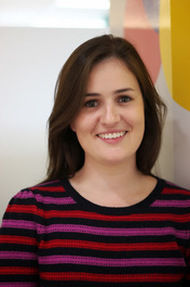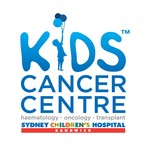In this series of blog posts we will introduce you to the researchers and health professionals of the Behavioural Sciences Unit – including information about their education and training, career direction, and words of wisdom about working in psycho-oncology.
Statistician and Research Officer
What degree did you just graduate from?
I recently graduated from a Bachelor of Psychological Science with Honours Class 1 in Psychology. I also hold a science degree majoring in mathematics and statistics.
What was your honours thesis about?
My thesis was in the area of social psychology and investigated the impact of distance and fear of retaliation on anger and aggression. Past studies have demonstrated that people tend to act more aggressively when their ‘target’ is further away. It’s a fascinating area of research, and has important real-life implications. For example, it may help us explain people’s aggressive behaviour in the online environment , or why soldiers can kill with such ease using remotely operated drones.
What are the three most important things you learnt in your degree?
(i) To look at all research with a critical, questioning, but open attitude
(ii) Good clinical practice needs to have good research behind it, and
(ii) How to manage my time and prioritise! An honours year is really just a big juggling act.
What about challenges - what was the most difficult thing about your degree?
Learning to write a good paper! Scientific writing that is both engaging and concise is the ultimate challenge.
Where are you headed next?
At the moment I am working as a research assistant in the School of Psychology at the University of New South Wales, and as a statistician for The Behavioural Sciences Unit at the Kids Cancer Centre, Sydney Children’s Hospital. Next year I am hoping to begin a combined Masters in Clinical Psychology and PhD.
Where do you see yourself in five years' time?
In five years’ time I (hope) to have finished my PhD and clinical training, and to be working in a job at the interface of research and clinical practice.
What advice would you have for someone wanting to follow a similar path in terms of their studies/career?
Get as much research experience as you can! Throughout my degree I gained research experience in many different fields of psychology including psycho-oncology, clinical and social psychology. I volunteered 5 hours a week for 5 months with the Behavioural Sciences unit, after which I was offered a research assistant position. I am now working in a research team investigating trauma and grief. I have obtained so many skills from these experiences and gained insight into some of the different areas of psychological research.
Finally, what are your tips for 'staying sane' while doing the degree you just finished?
I have always maintained that a healthy lifestyle balance is important. I found that in order for me to stay sane I needed a good balance between social/relaxation activities, exercise, and academic work. I think it’s really important, no matter how busy you are, to allocate time each week to relaxing and doing something you enjoy. For me, I always made sure I had Friday nights off, no matter how busy I was. I think it’s also important to give yourself a ‘reality check’ every now and then – to remind yourself of why you are doing what you are doing, and why it is important. It can be really easy to get bogged down in menial tasks, and forget the bigger picture of what inspired you to study/work in your area!
The Behavioural Sciences Unit is Proudly Supported by the Kids with Cancer Foundation.



 RSS Feed
RSS Feed